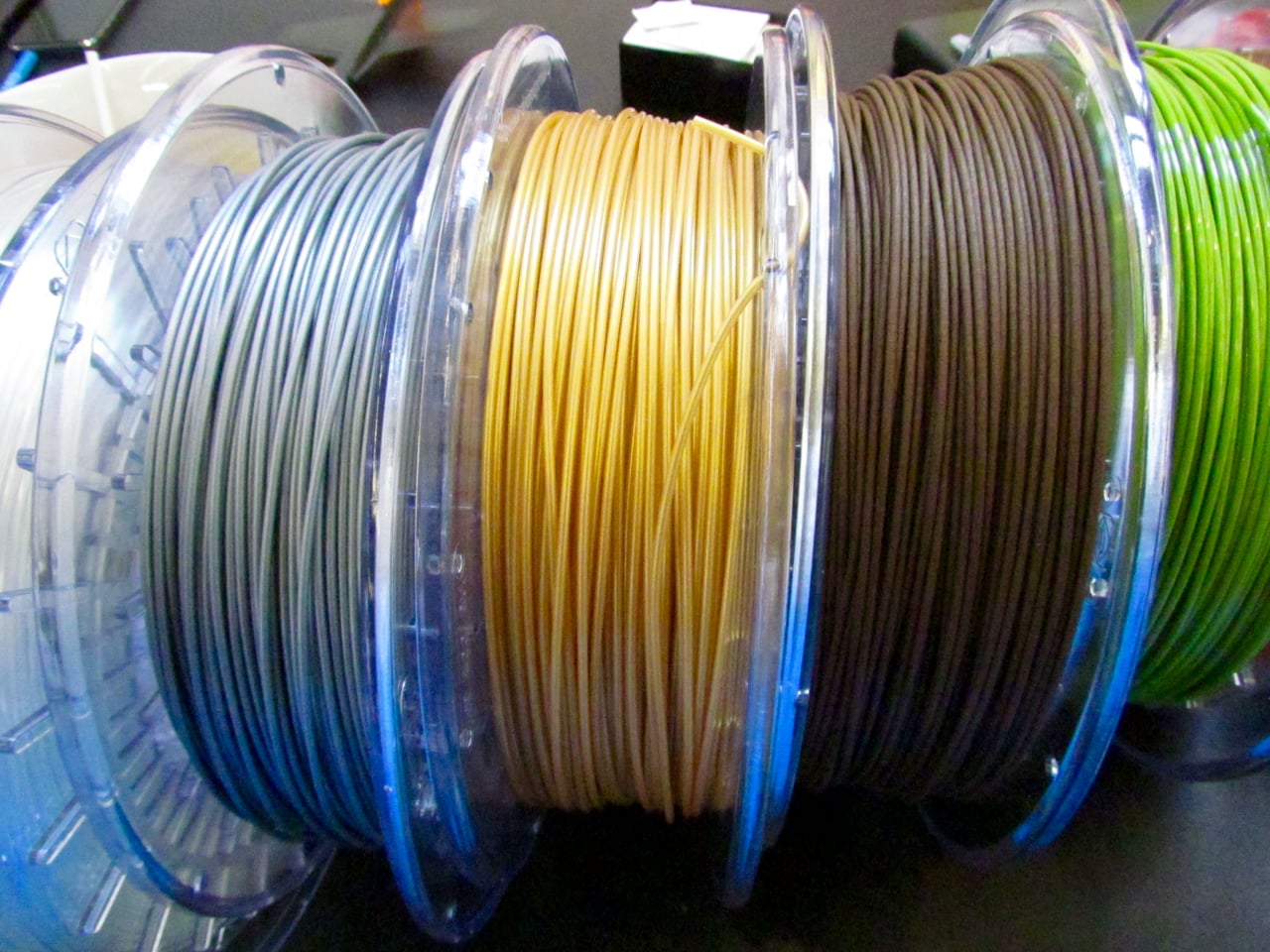
I met with representatives of Filamentive to find out more about their interesting series of sustainable 3D printer filaments.
Ravi Toor is the founder of Filamentive, a UK-based operation focusing on high-quality, sustainable 3D printer filaments. Toor explained that the company “went live” this February selling its line of 3D printer filaments.
Their market is composed of those in the public using desktop 3D printers, but they’ve also made deals with makerspaces to supply 3D printer filament.
The most important aspect of any filament is the quality; poor quality filament might be inexpensive, but it’s useless if it cannot be printed properly. I’ve used filament so poorly made that it is literally impossible to print – even though it was cheap.
So what is the quality of Filamentive’s products? I’ve not yet tried the filament, but they explain their quality process in some detail:
We only offer the best 3D printing consumables and our stringent quality control measures are implemented to ensure this is the case. Roundness of at least 95% is guaranteed, as well as ±0.05mm diameter tolerances across our filament lines. We have specific, regulated drying procedures for each material and all feedstock streams are proven 100% homogenous with no foreign debris. During extrusion, filament is measured constantly from 2-axes, with an alarm bell sounding if the specification falls outside parameters. Filament is then wound onto bulk spools for visual inspection before it is put onto the reels we sell. All materials are REACH, RoHS and FDA compliant.
And unlike almost every other filament vendor I’ve encountered, they offer a 90 day money back guarantee. This will enable you to determine if you can successfully print their filaments on your machine. What can you lose?
What do they offer? PET, PLA, Carbon Fiber, Wood, Glass and a flexible filament. They also have intentions of offering nylon, polycarbonate, PVA, HIPS and other materials in the future. But the main attraction to Filamentive is their recycling approach.
Their “rPLA and rPET” are actually made from recycled plastic “originating from waste sources”. They’ve worked with waste collection services and their extrusion partners to develop this eco-friendly series of products.
Toor also explained that it’s also possible exchange empty spools for new product.
Pricing is not huge as you might expect. For a 1kg spool of recycled PLA, Filamentive charges £20.83 (USD$27)! Recycled PET is slightly more, but still very affordable. Other products are priced higher as they are specialty materials.
My only concern about Filamentive is the shipping costs, which might be prohibitive if purchasing from somewhere other than the EU. Shipping to our lab, for example, would add £25 (USD$33) to the price of a single 1kg spool, making the price not competitive to other options.
For Filamentive, I suggest they make arrangements with regional resellers that can defray the high cost of shipping this high-quality filament worldwide.
Via Filamentive

